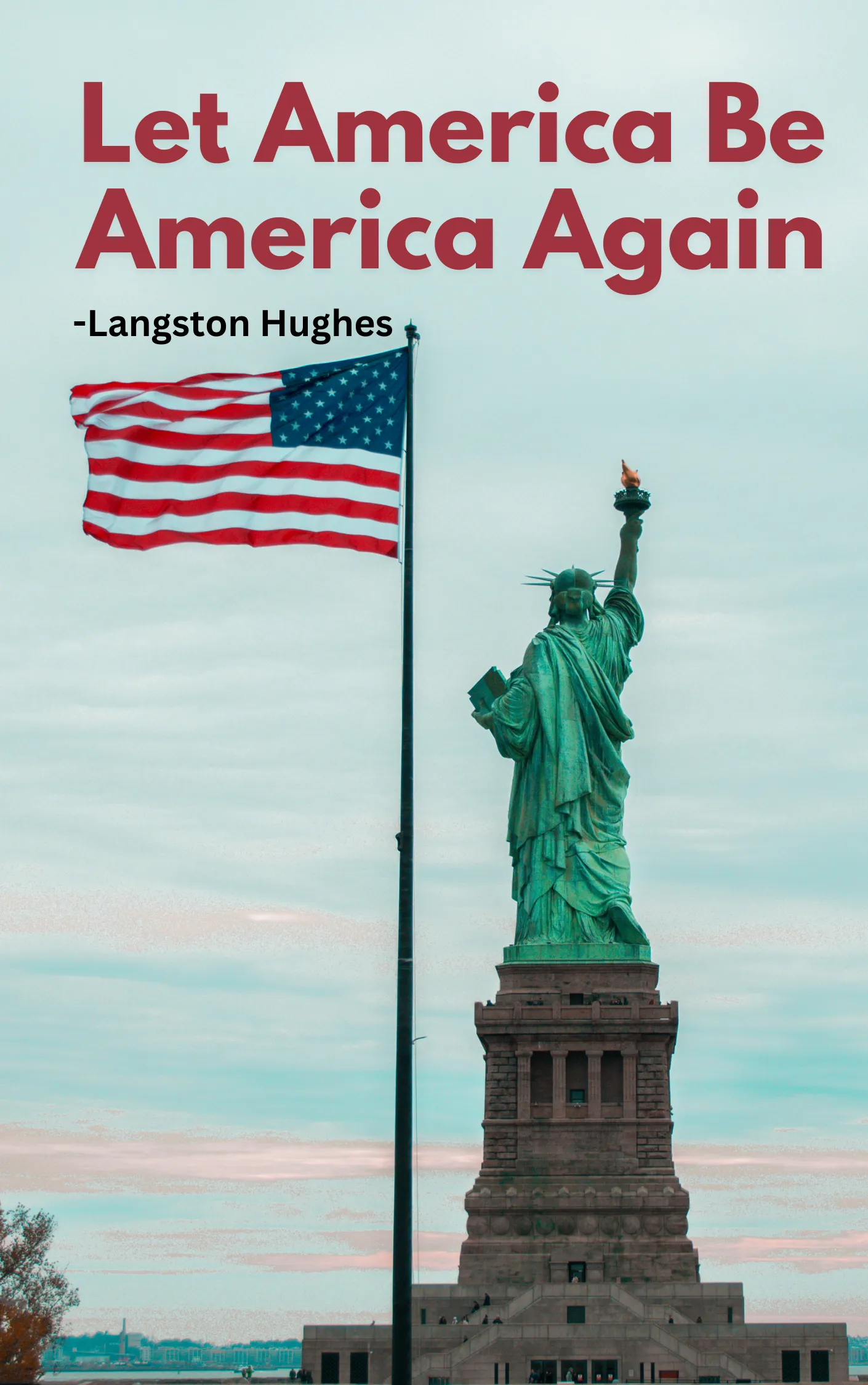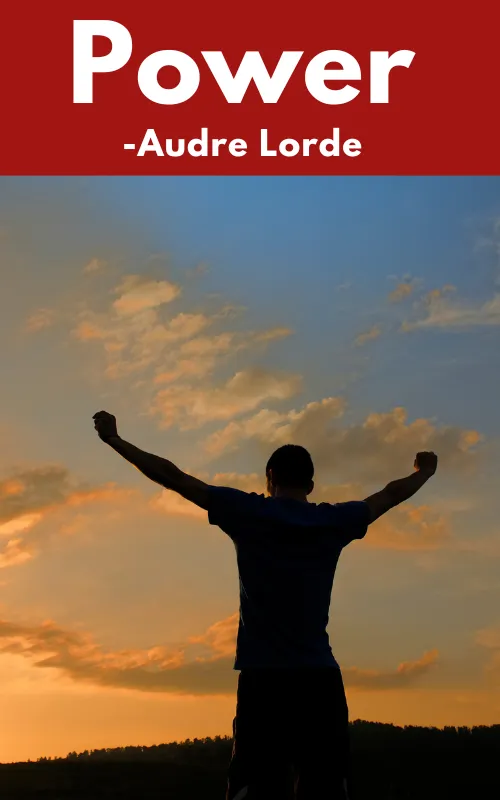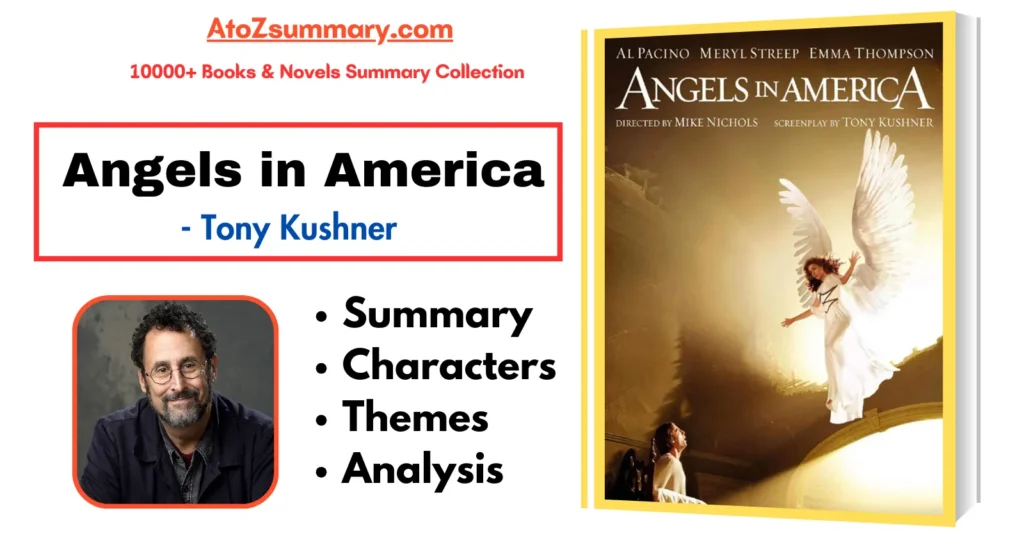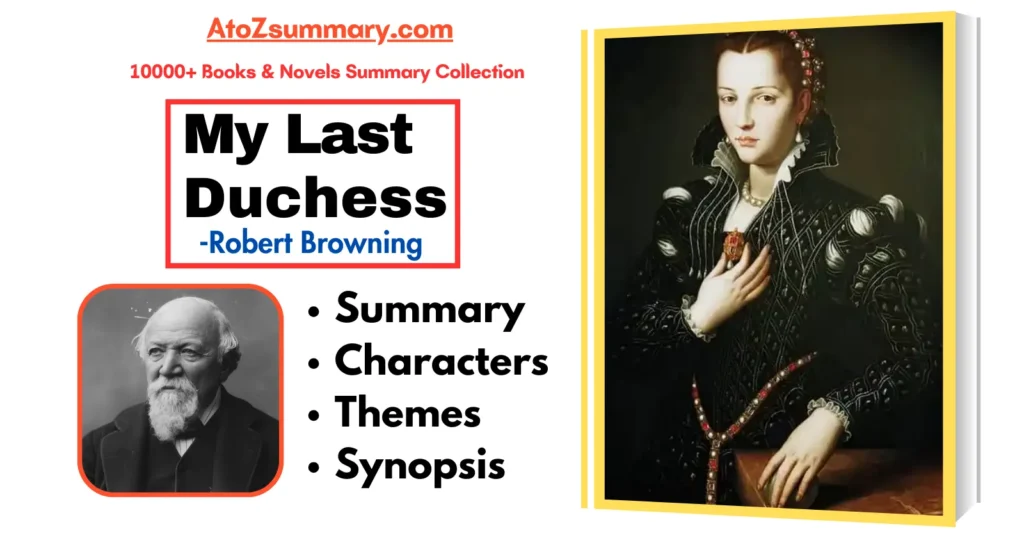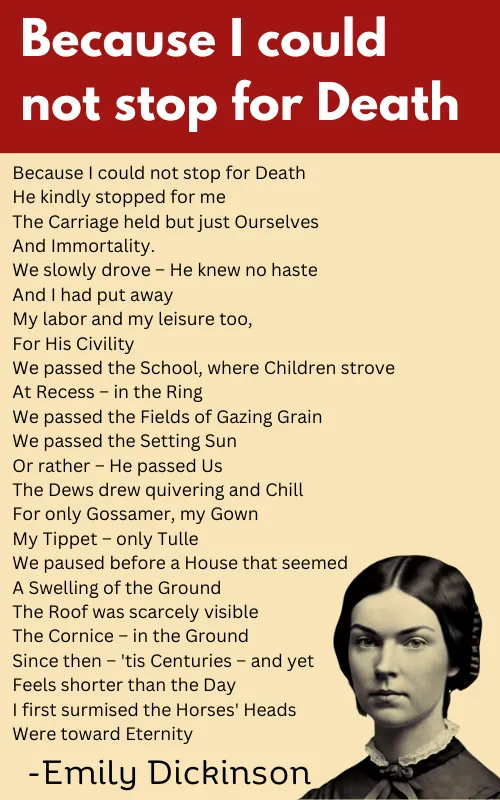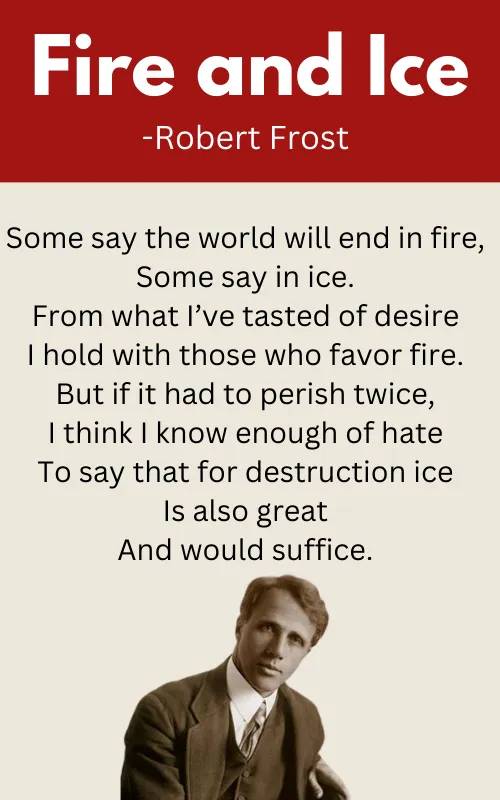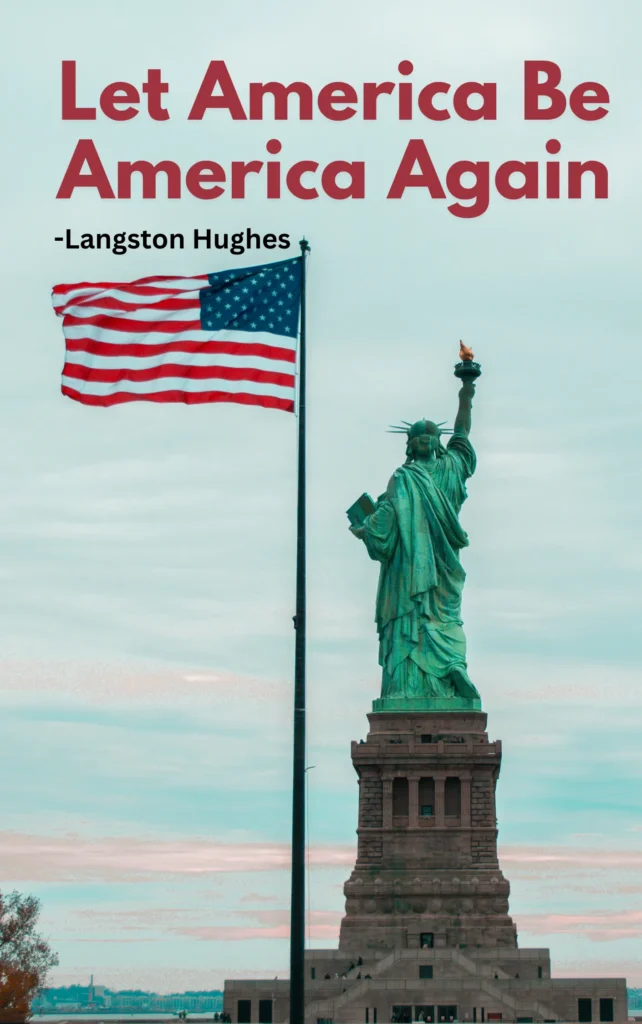
About Poem- Let America Be America Again
| Poem Title | Let America Be America Again |
| Author | Langston Hughes |
| Genre | Lyrical poem |
| Publication date | 1935 |
| Speaker | The poet, Langston Hughes |
| Setting | America during the Great Depression |
| Subject | The poet’s dream of a more just and equitable America |
| Themes | The American Dream, racial injustice, social justice, hope |
Let America Be America Again Poem
Let America be America again.
Let it be the dream it used to be.
Let it be the pioneer on the plain
Seeking a home where he himself is free.
(America never was America to me.)
Let America be the dream the dreamers dreamed
Let it be that great strong land of love
Where never kings connive nor tyrants scheme
That any man be crushed by one above.
(It never was America to me.)
O, let my land be a land where Liberty
Is crowned with no false patriotic wreath,
But opportunity is real, and life is free,
Equality is in the air we breathe.
(There’s never been equality for me,
Nor freedom in this “homeland of the free.”)
Say, who are you that mumbles in the dark?
And who are you that draws your veil across the stars?
I am the poor white, fooled and pushed apart,
I am the Negro bearing slavery’s scars.
I am the red man driven from the land,
I am the immigrant clutching the hope I seek
And finding only the same old stupid plan
Of dog eat dog, of mighty crush the weak.
I am the young man, full of strength and hope,
Tangled in that ancient endless chain
Of profit, power, gain, of grab the land!
Of grab the gold! Of grab the ways of satisfying need!
Of work the men! Of take the pay!
Of owning everything for one’s own greed!
I am the farmer, bondsman to the soil.
I am the worker sold to the machine.
I am the Negro, servant to you all.
I am the people, humble, hungry, mean
Hungry yet today despite the dream.
Beaten yet today—O, Pioneers!
I am the man who never got ahead,
The poorest worker bartered through the years.
Yet I’m the one who dreamt our basic dream
In the Old World while still a serf of kings,
Who dreamt a dream so strong, so brave, so true,
That even yet its mighty daring sings
In every brick and stone, in every furrow turned
That’s made America the land it has become.
O, I’m the man who sailed those early seas
In search of what I meant to be my home
For I’m the one who left dark Ireland’s shore,
And Poland’s plain, and England’s grassy lea,
And torn from Black Africa’s strand I came
To build a “homeland of the free.”
The free?
Who said the free? Not me?
Surely not me? The millions on relief today?
The millions shot down when we strike?
The millions who have nothing for our pay?
For all the dreams we’ve dreamed
And all the songs we’ve sung
And all the hopes we’ve held
And all the flags we’ve hung,
The millions who have nothing for our pay
Except the dream that’s almost dead today.
O, let America be America again
The land that never has been yet
And yet must be-the land where every man is free.
The land that’s mine-the poor man’s, Indian’s, Negro’s, ME
Who made America,
Whose sweat and blood, whose faith and pain,
Whose hand at the foundry, whose plow in the rain,
Must bring back our mighty dream again.
Sure, call me any ugly name you choose
The steel of freedom does not stain.
From those who live like leeches on the people’s lives,
We must take back our land again,
America!
O, yes,
I say it plain,
America never was America to me,
And yet I swear this oath
America will be!
Out of the rack and ruin of our gangster death,
The rape and rot of graft, and stealth, and lies,
We, the people, must redeem
The land, the mines, the plants, the rivers.
The mountains and the endless plain
All, all the stretch of these great green states
And make America again!
Let America Be America Again Summary & Analysis
Let America Be America Again is a powerful and poignant poem by Langston Hughes, a prominent African American poet of the Harlem Renaissance. This poem, written in 1935, explores the American Dream and the stark contrast between its promise and the reality faced by marginalized and oppressed communities. The poem consists of multiple stanzas, each offering a unique perspective on the American experience. Here’s a stanza-by-stanza summary:
Stanza 1: In the first stanza, Hughes begins by asserting the title’s refrain, “Let America be America again.” This immediately sets the tone for the poem. He presents the idea that there was once an idealized vision of America, a land of liberty, justice, and opportunity. However, he notes that this promise has been denied to many, particularly those who are oppressed and marginalized.
Stanza 2: The second stanza introduces the concept of “the dream,” which represents the idealistic vision of America, a place where freedom, equality, and opportunity are available to all. Hughes acknowledges that this dream was never fully realized but has been deferred or postponed. He also touches on the experiences of Native Americans and African Americans, who suffered from systemic discrimination and dispossession.
Stanza 3: The third stanza delves into the harsh realities faced by the marginalized in America. Hughes mentions the “Negro” who was enslaved and mistreated throughout American history. He highlights the experience of those who have been “stolen, sold, and bought,” shedding light on the horrors of the African American slave trade.
Stanza 4: Stanza four emphasizes the suffering and oppression faced by the impoverished working class, including factory workers, sharecroppers, and miners. Hughes describes how these people have toiled and struggled, often without reaping the rewards of their labor, echoing the theme of economic inequality.
Stanza 5: The fifth stanza speaks to the Native Americans and the injustice they experienced as their land was taken from them. Hughes references “the Indian’s gift” of the land, which was taken away from them as America expanded westward. This highlights the history of forced displacement and marginalization of Native communities.
Stanza 6: In the sixth stanza, Hughes focuses on the idea of freedom and the notion that it has been restricted for many. He acknowledges that while the Constitution promises freedom and equality, these ideals have been denied to certain groups, particularly African Americans.
Stanza 7: The seventh stanza reflects on the struggles and aspirations of immigrants who came to America in search of a better life. Hughes notes that these individuals have contributed to the nation’s growth and diversity, yet they, too, have faced hardships and discrimination.
Stanza 8: Stanza eight speaks to the promise of equality and justice, which Hughes suggests has not been realized for many. He references the “tyrant’s hand,” representing oppression and discrimination that have been obstacles to achieving the American Dream.
Stanza 9: The ninth stanza expresses a call for change and renewal. Hughes insists that America must return to its idealistic roots and fulfill its promise of liberty and justice. He calls for the day when “Equality is in the air we breathe” and for America to live up to its highest ideals.
Stanza 10: The final stanza reiterates the refrain, “Let America be America again.” Hughes implores that the dream of America, which includes freedom and equality for all, must be realized. He expresses hope that the country can overcome its history of oppression and discrimination to create a more just and equitable society.
Let America Be America Again FAQs
What is the message of the poem Let America Be America Again?
The message of the poem “Let America Be America Again” is that America should live up to its ideals of freedom and equality for all.
What is the tone of the poem Let America Be America Again?
The tone of the poem “Let America Be America Again” by Langston Hughes is one of bittersweet hope.
What is the symbolism in Let America Be America?
The symbolism in “Let America Be America Again” is that the title is a plea for America to live up to its ideals of freedom and opportunity for all.
What is the thesis statement of Let America Be America Again?
The thesis statement of “Let America Be America Again” by Langston Hughes is that America has failed to live up to its ideals of liberty and equality for all, but it is still possible to create a more just and equitable society.
How does the speaker convey what it means to be an immigrant in America?
The speaker conveys what it means to be an immigrant in America by describing their own experiences and the experiences of other immigrants, including the challenges they face and the dreams they hold.
Who in Let America Be America Again is fooled and pushed apart?
The people who are fooled and pushed apart are the marginalized groups in American society, such as African Americans, Native Americans, immigrants, and poor whites.

